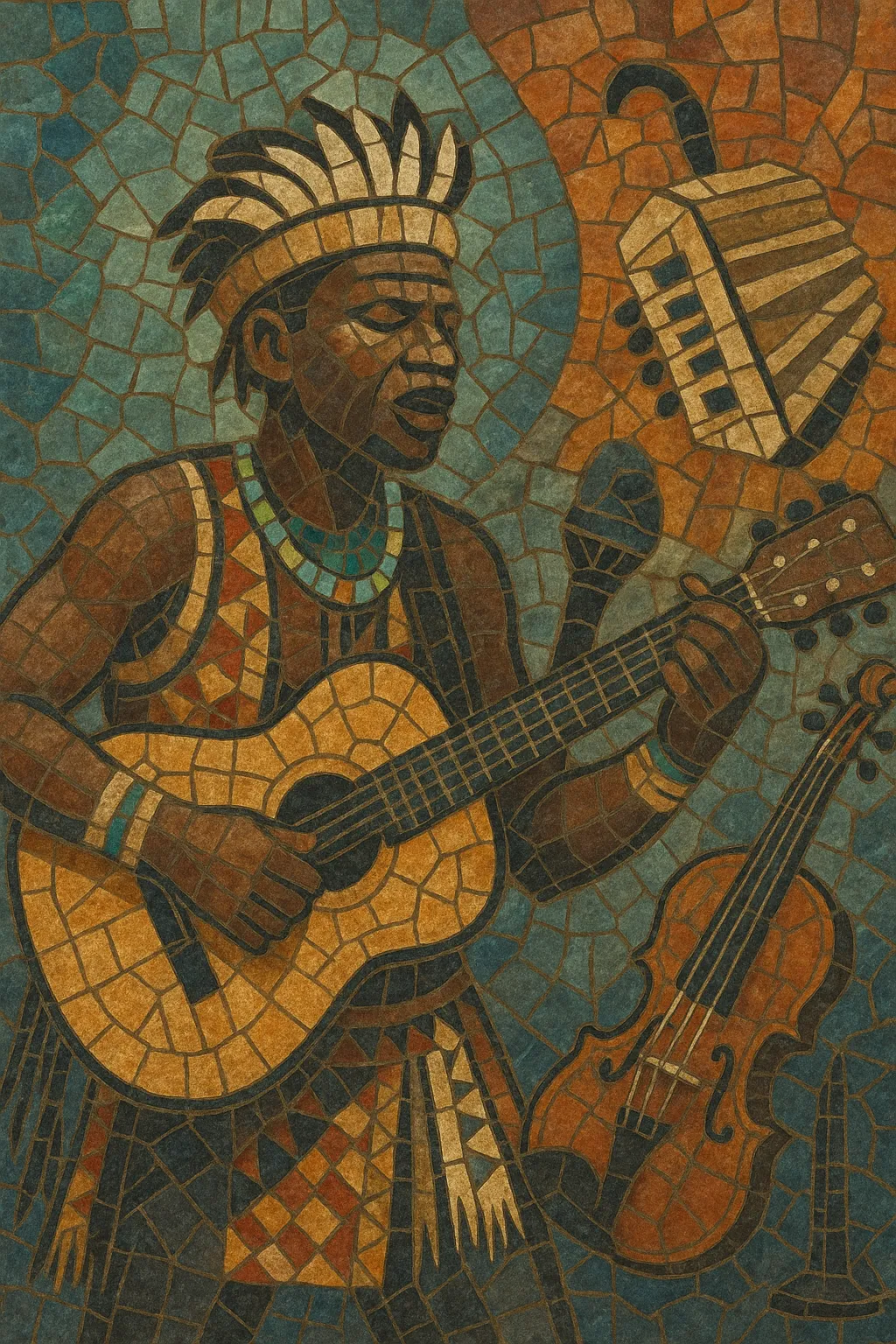Maskandi (also spelled maskanda) is a guitar-driven Zulu folk-pop tradition from South Africa, rooted in the experiences of rural-to-urban migrant workers.
It is characterized by fast, intricate fingerpicked guitar lines, rolling bass movement, and a lead vocal that often alternates between melodic singing and spoken or chanted praise-poetry (izibongo). Choruses typically use call-and-response with a small backing group.
Classic ensembles add concertina or accordion and violin to acoustic/electric guitar, with later bands employing drum kits and keyboards. Lyrics, usually in isiZulu, reflect social commentary, personal narratives, journeys between countryside and city, and community pride.
Rhythmically, maskandi tends toward a lilting shuffle or 12/8 swing feel, with bright tonic–subdominant–dominant harmonies and pentatonic/modal color. Its sound balances rural roots with township modernity, making it both danceable and storytelling-oriented.
Maskandi emerged among Zulu-speaking migrant laborers who moved from rural KwaZulu-Natal to industrial centers. Guitar, concertina, and violin adapted rural song and praise-poetry traditions to urban hostel and shebeen spaces. Early maskandi consolidated a guitar idiom: brisk fingerpicking, alternating bass, and vocal recitation reminiscent of izibongo.
Growing access to recording and radio helped maskandi move from informal performance to commercial releases. Bands formalized the lineup—lead singer-guitarist with backing chorus and rhythm section—and drew on township production techniques. The repertoire expanded from personal and clan narratives to commentary on work, migration, and changing gender and social relations.
Maskandi reached national prominence through charismatic bandleaders and tighter studio production. Artists modernized arrangements with drum kits, keyboards, and electric guitars while keeping concertina/violin timbres and the storytelling core. The style became a symbol of Zulu cultural pride and a mainstay of festivals and broadcast media.
New generations have blended maskandi with pop and urban production while preserving isiZulu lyrics and the core guitar language. Rivalries and lyrical debates between artists echo earlier praise-poetry contests, sustaining the genre’s dialogic spirit. Maskandi continues to document rural-urban life and remains a living tradition within South Africa’s musical landscape.


